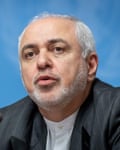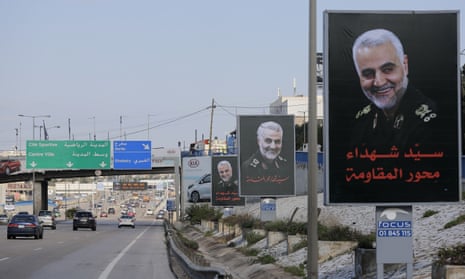Even by the standards of the Middle East it was a remarkable week. You have to deal with what presents itself in the region – there is little point in rehearsing justification for any action by reference to previous activity. Everyone has their own history.
The rights and wrongs of the killing of the Iranian general Qassem Suleimani will long be debated, so they are pointless to pursue here. It was always going to be about what happened next. The consequences could as likely have been propelling the region towards outright conflict as something different. But the combination of a symbolic retaliation, followed by the shooting down of a scheduled passenger airliner – and now the admission of such – provides an opportunity few could sensibly have predicted.
The chance must be seized, by those most closely involved and by the world. It is not as if the opportunity opened by last week’s events has come out of the blue. Regional voices, including those from Saudi Arabia and the UAE, have been counselling caution for many months, while also rightfully making clear the need for regional involvement with future steps. The US and Iran nearly met at the UN in the autumn, and the rhetoric is cooler.
There are some cautious feelers for dialogue already out there, and Iranian foreign minister Mohammad Javad Zarif’s speeches to the diplomatic community always conclude with such a request.

With no naivety, nor minimising of enormity, it should not be wrong to consider the following with urgency:
The US should rescind last week’s ban on Zarif travelling to the UN – whether or not it was legitimate in the first place. Zarif should take the opportunity to go, and perhaps seek a meeting either at the UN or outside its confines with ministers and diplomats keen to make progress, as advocated by the European Council on Foreign Relations last week.
The French proposal, which was around at the time of the UN general assembly last September, to broker a deal on the release of some oil sales by Iran, in return for a resumption of Iran’s agreements on the Joint Comprehensive Plan of Action nuclear deal, might be revived. The US could then begin to ease sanctions further, and talks could begin on JCPOA 2. The existing deal is unlikely to survive in present form, but all existing partners, and crucially regional Arab states, should be involved in what comes next.
Iran could and should rethink its position on imprisoned dual nationals, such as Nazanin Zaghari-Ratcliffe – releases could unlock much.
The UK can play a vital role, from its excellent UN representation to diplomatic reach throughout the region and its relationships with the US and EU. Let us seize the chance. It is unlikely the victims of Ukraine International Airlines flight PS752 will be the last lives lost in the Middle East, but we owe it to them, and to many other grieving families, to make them among the last.
Alistair Burt was minister for the Middle East from 2017 to 2019
